Featured
Virus cases among Bangladeshi workers in Maldives surge past 1k

The number of Bangladeshi workers infected with the novel coronavirus in Maldives crossed the 1,000th mark Monday.
Health Protection Agency (HPA) said a total of 56 new cases were detected in the 24 hours from 6pm Sunday, bringing the national tally to 1,829.
The new cases include 29 Bangladeshis and 27 Maldivians.
The confirmed local transmission clusters in the country now include 1,003 Bangladeshis, 590 Maldivians, 186 Indians, 23 Nepalis, nine Sri Lankans and three Pakistanis.
The grim milestone in the spread of virus amongst the migrant worker population came hours after the Maldives reported its sixth coronavirus related fatality: a 54-year-old Bangladeshi.
Authorities managed to mitigate the spread of the virus and the Covid-19 respiratory disease it causes amongst the Maldives’ citizens and residents early on by closing the Indian Ocean tourist paradise’s borders, earning praise from the World Health Organisation.
But the disease later spread rapidly within the large migrant worker community in capital Male. Authorities have ramped up relocating workers from the cramped up dormitories in one of the world’s most densely populated cities to temporary accommodation units.
An estimated 63,000 foreign nationals work in the Maldives illegally out of a migrant worker population close to 145,000.
Foreign workers in the Maldives, predominantly Bangladeshi and Indian men, are subjected to practices indicative of forced labour, including fraudulent recruitment, confiscation of identity and travel documents, withholding or non-payment of wages, and debt bondage.
As most migrant workers live in extremely poor conditions, a widespread outbreak amongst them could lead to large virus clusters, overwhelming the country’s already under staffed and strained healthcare system and making it harder for authorities to contain the spread of the virus.
On March 8, Maldives reported its first cases of the novel coronavirus, as two hotel employees tested positive for Covid-19 at a luxury resort in the archipelago.
Eighteen more cases — all foreigners working or staying resorts and liveaboard vessels except five Maldivians who had returned from abroad — were later identified.
A six-case cluster of locals, detected in capital Male on April 15, confirmed community transmission of the coronavirus. Several more clusters have since been identified, bringing the total number of confirmed case in the Maldives to 1,829.
Six deaths have been reported and 488 have made full recoveries. Five remain in intensive care.
The Maldives announced a state of public health emergency on March 12, the first such declaration under a recent public health protection law.
The public health emergency declaration allowed the government to introduce a series of unprecedented restrictive and social distancing measures, including stay-at-home orders in capital Male and its suburbs, a ban on inter-island transport and public gatherings across the country, and a nationwide closing of government offices, schools, colleges and universities.
Non-essential services and public places in the capital such as gyms, cinemas and parks were also shut.
Restaurants and cafes in the capital were asked to stop dine-in service and switch to takeaway and delivery.
A nationwide shutdown of all guesthouses, city hotels and spa facilities located on inhabited islands is also in effect.
The coronavirus outbreak has hit the Maldivian economy hard, as travel restrictions and other preventive measures affect the country’s lucrative tourism industry, which contributes the bulk of the island nation’s state revenue and foreign reserves.
Before the pandemic, the government had been bullish about tourism prospects, targeting two million, high-spending holidaymakers this year after last year’s record 1.7 million.
However, tourist arrivals saw a year-over-year decline of 22.8 per cent in the first 10 days of March. Officials say the number of tourist arrivals to the Maldives could drop by half in 2020.
All international airlines have suspended scheduled operations to the Maldives, as the island nation enforced a blanket suspension of on-arrival visa in late March in a bid to combat the spread of the novel coronavirus.
Even before the visa suspension, the Maldives had closed its borders to arrivals from some of the worst-hit countries, including mainland China, Italy, Bangladesh, Iran, Spain, the United Kingdom, Malaysia and Sri Lanka. Visitors from three regions of Germany (Bavaria, North Rhine-Westphalia and Baden-Württemberg), two regions of France (Île-de-France and Grand Est) and two regions of South Korea were also banned from entering the country.
All direct flights to and from China, Italy, South Korea and Iran were also cancelled.
Cruise ships and foreign yachts were also banned from docking at any of the country’s ports.
With arrival numbers falling and the visa suspension in effect, several resorts across the Maldives had been closed.
Tourism has been the bedrock of the Maldives’ economic success. The $5 billion-dollar economy grew by 6.7 per cent in 2018 with tourism generating 60 per cent of foreign income.
However, the government is at present projecting a possible 13 per cent economic contraction this year — an estimated $778 million hit.
Photo: Sun Online
Featured
City Iftar experience curated at JEN Maldives by Shangri-La

JEN Maldives by Shangri-La is welcoming the holy month of Ramadan with a series of Iftar evenings at Lime Restaurant, inviting guests to gather in the spirit of reflection, gratitude and togetherness.
Recognising Ramadan as a time that brings families, friends and communities closer, the hotel has curated an Iftar experience designed to go beyond dining. The focus is on creating a welcoming environment where traditions are observed, conversations unfold naturally and shared moments are celebrated around the table.
Located in the heart of Malé, Lime Restaurant provides a warm and contemporary setting suited to a range of gatherings, from colleagues reconnecting after work to families and friends breaking fast together. Each evening reflects the generosity associated with Ramadan, featuring carefully prepared dishes, live cooking stations and a selection of sweet treats that balance traditional flavours with creative touches.
Iftar at JEN Maldives by Shangri-La is shaped by attentive service and thoughtful hospitality. Guests are welcomed into an atmosphere that blends comfort with understated elegance, allowing space for reflection while enjoying a relaxed dining experience. The hotel’s culinary and service teams work closely to ensure consistency, quality and authenticity throughout the season.
Whether for intimate gatherings or larger group celebrations, the venue offers flexibility supported by a culinary programme rooted in care and attention to detail. The Ramadan offering is designed to ensure guests feel at ease while enjoying a distinctive Iftar experience in the capital.
Throughout the holy month, JEN Maldives by Shangri-La invites guests to come together at Lime Restaurant to experience evenings defined by flavour, generosity and meaningful connection, in keeping with the true spirit of Ramadan.
Drink
Provence comes to Maldives with Château Minuty dinner at Milaidhoo Maldives
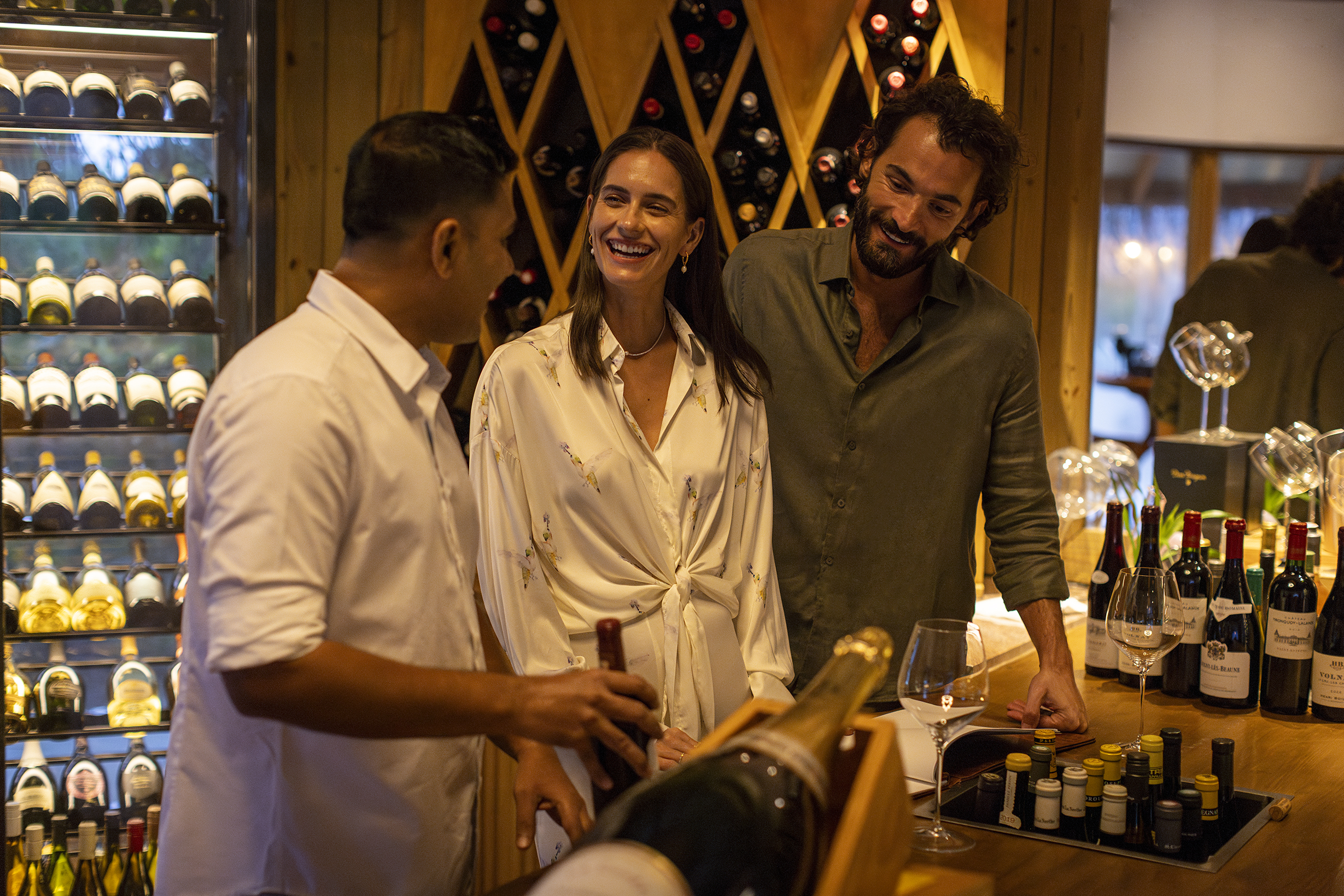
Milaidhoo Maldives is hosting a wine pairing dinner celebrating Provençal elegance and gastronomy on 4 March 2026 at the resort’s Shoreline Grill. The evening will feature wines from Château Minuty and will be hosted by Sébastien Nore, Global Strategy and Export Director of Château Minuty, offering guests insight into the winery’s heritage and approach to fine winemaking.
Originally from Limousin, France, Nore brings extensive experience in the international beverage industry. His career includes roles with Kronenbourg Wineries and PepsiCo France, followed by senior leadership positions at Diageo and Baron Philippe de Rothschild. He has played a key role in expanding Château Minuty’s global presence and currently oversees the winery’s strategy, sales, communication and marketing, with a focus on innovation and the refined character of Provençal rosé.
During the dinner, guests will enjoy a curated selection of Château Minuty wines, paired with a bespoke menu created by the Shoreline Grill culinary team. The featured wines include:
- Château Minuty M de Minuty Rosé Magnum 1.5L – Artist Edition 2024
- Château Minuty Prestige Rosé 2024
- Château Minuty Rosé et Or 2024
- Château Minuty 281 2024
Beyond this event, the dinner reflects Milaidhoo Maldives’ wider commitment to gastronomy. The resort’s Gourmet Plan is designed for guests with a strong interest in food and wine, offering personalised, multi-course dining experiences throughout their stay. Each menu is crafted to highlight the relationship between carefully selected ingredients and complementary wines, with an emphasis on authenticity and balance.
The Château Minuty dinner marks the fourth wine-focused event hosted by Milaidhoo Maldives this year, underscoring the resort’s ongoing focus on curated culinary experiences. The evening is positioned as a sensory journey, combining refined flavours, thoughtful pairings and a convivial island setting.
Awards
Constance Halaveli and Constance Moofushi earn top scores in 2026 Booking.com awards
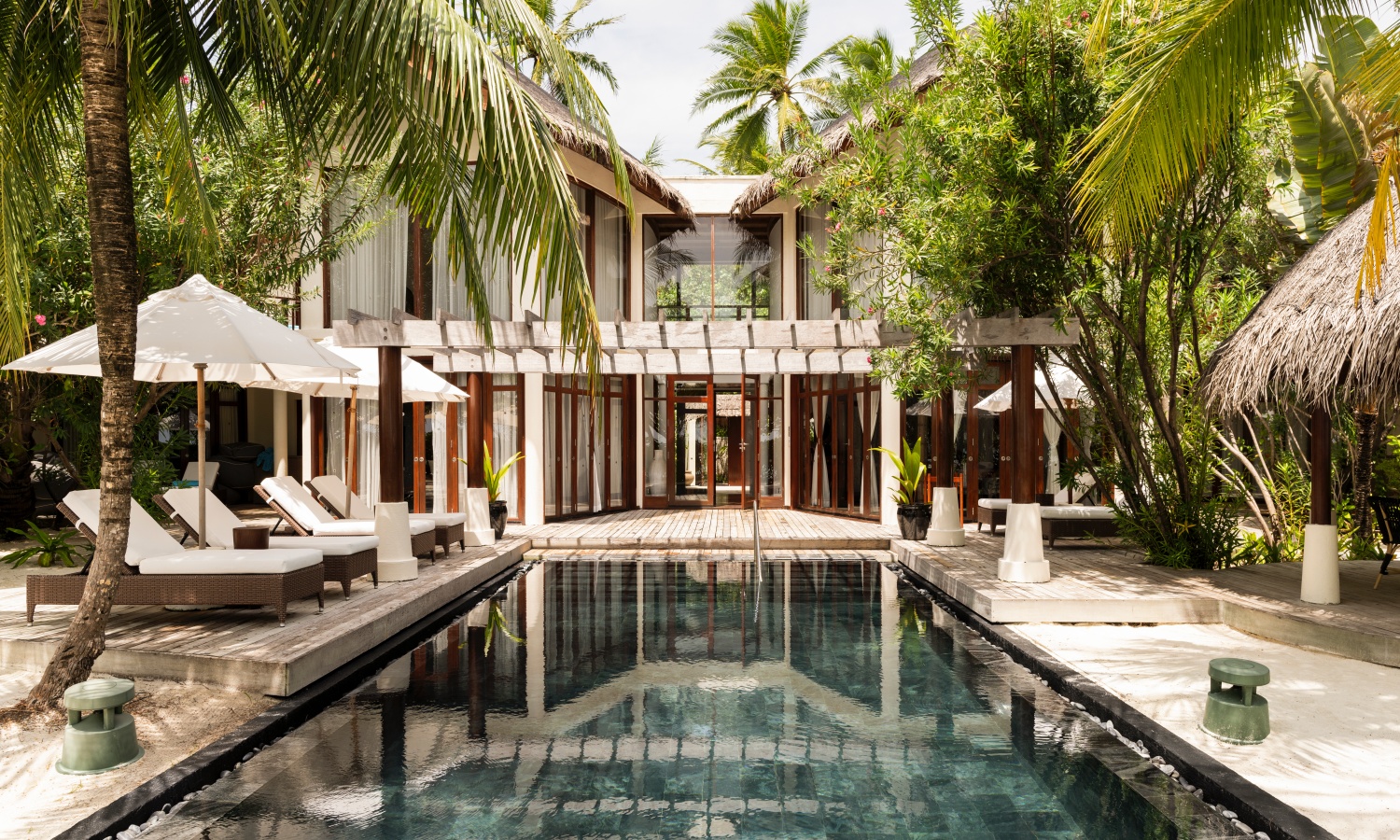
Constance Hospitality has been recognised in the 2026 Traveller Review Awards by Booking.com, with its Maldivian resorts achieving some of the highest scores within the group’s portfolio.
In the Maldives, Constance Halaveli Maldives received an outstanding score of 9.8 out of 10, while Constance Moofushi Maldives achieved 9.7. The ratings, based on verified guest reviews, reflect consistently high levels of guest satisfaction and service delivery.
Constance Halaveli Maldives, known for its spacious overwater and beachfront villas, personalised service and refined dining concepts, continues to perform strongly among travellers. Constance Moofushi Maldives, positioned as a barefoot chic resort with an all-inclusive concept, also maintains a high guest approval rating, supported by its diving experiences and relaxed island atmosphere.
While the wider Constance portfolio across the Indian Ocean was recognised, the Maldives properties stand out as the group’s highest-rated resorts in the 2026 awards cycle.
Commenting on the recognition, Jean-Jacques Vallet, Chief Executive Officer of Constance Hospitality, stated that the awards reflect the professionalism and commitment of the teams on the ground. He added that guest feedback remains central to maintaining service standards and delivering consistent experiences across the group’s destinations.
The recognition reinforces the position of Constance Halaveli Maldives and Constance Moofushi Maldives as leading performers within the Maldives’ competitive luxury hospitality sector.
-
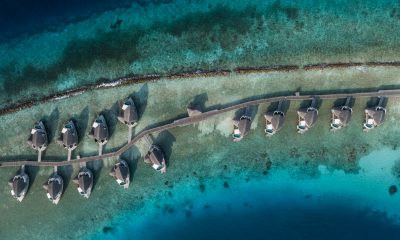
 News1 week ago
News1 week agoJW Marriott Maldives Resort & Spa invites families to celebrate Eid Al-Fitr in island luxury
-
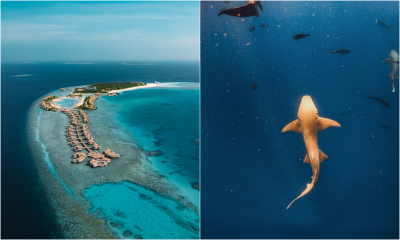
 Action1 week ago
Action1 week agoInterContinental Maldives Maamunagau Resort launches ‘Swim with Nurse Sharks’ experience
-
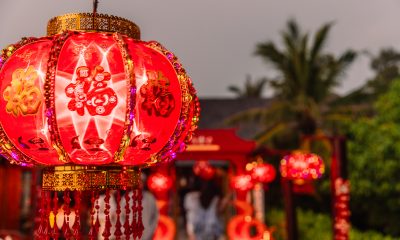
 Featured1 week ago
Featured1 week agoYear of the Horse celebrations across Sun Siyam’s Luxury, Privé and Lifestyle resorts
-

 Love1 week ago
Love1 week agoAzur rooftop at JEN Maldives sets stage for Valentine’s Day dining
-
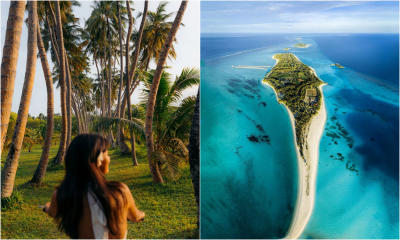
 Awards1 week ago
Awards1 week agoVilla Park secures second straight HolidayCheck Award
-
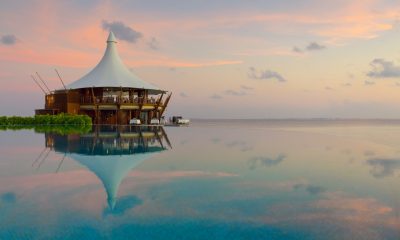
 Cooking1 week ago
Cooking1 week agoBaros Maldives’ The Lighthouse to present Duval-Leroy champagne pairing experience
-

 Featured1 week ago
Featured1 week agoCentara Hotels & Resorts marks Valentine’s Day with island-wide celebrations in Maldives
-

 Action1 week ago
Action1 week agoLUX Tennis joins St. Regis Maldives Vommuli to expand active lifestyle programme








